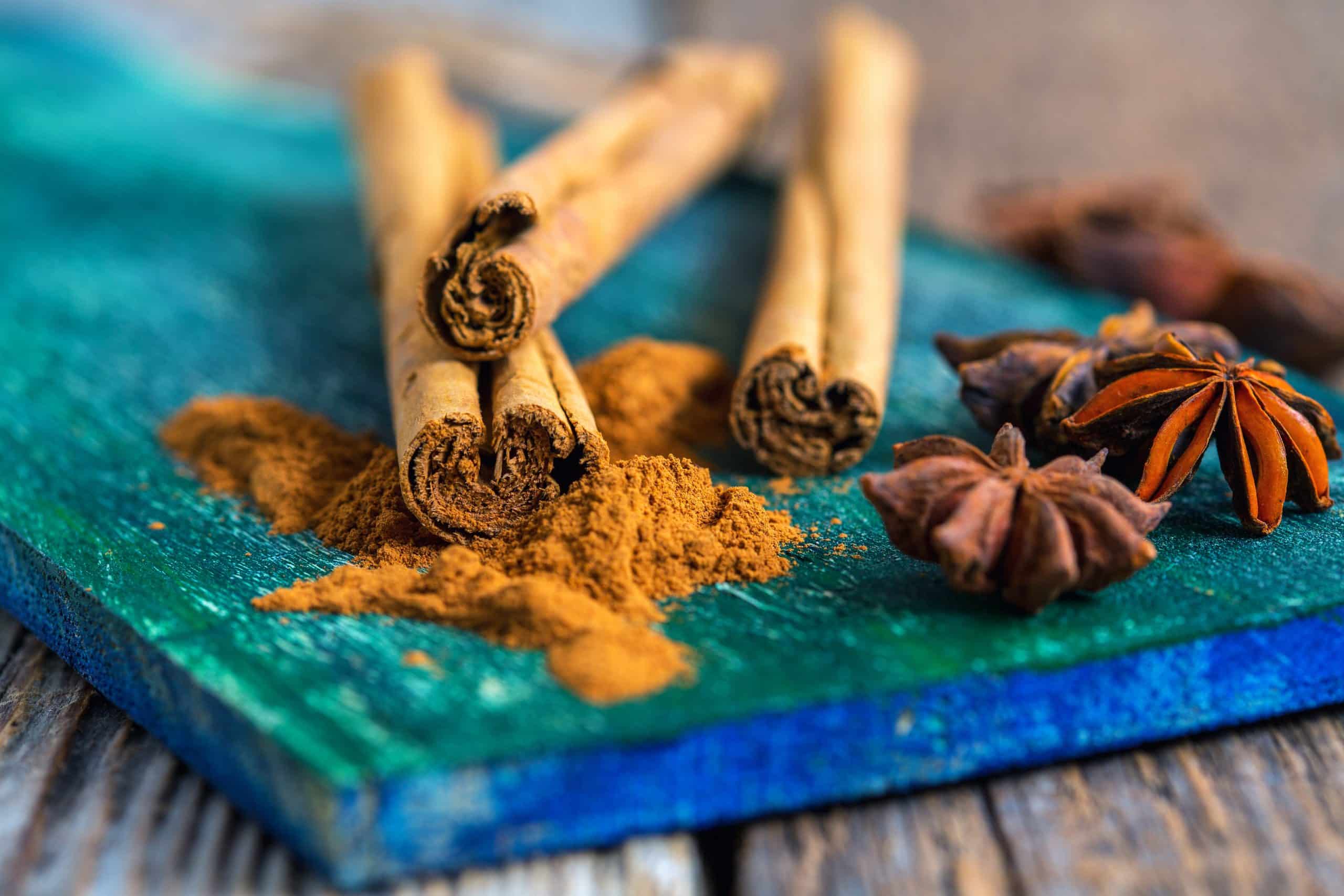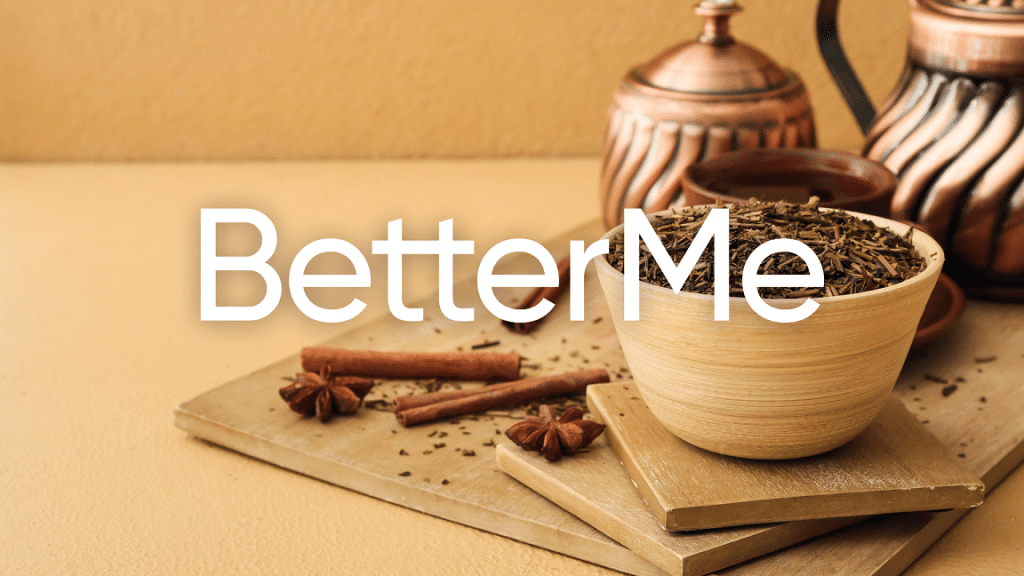Cinnamon stands out among spices for its distinct healing properties. It is a staple ingredient of many cultural recipes, adding a subtle flavor and color to the dishes. Cinnamon cassia is the most common type of Cinnamon and is a typical household item. Another variant of Cinnamon is Ceylon Cinnamon. It contains the same flavor and active ingredients as cinnamon cassia but has a distinct shape, lighter color, and a delicate taste. Ceylon Cinnamon is also being investigated for a few potential health benefits (1). Ceylon Cinnamon is extracted from the inner bark of cinnamon trees. These small evergreens are primarily found in Sri Lanka and Southeast Asia. After the bark dries it can be used in stick or powdered form to add warmth and taste to a vast range of food items. Besides its unique flavor, Ceylon Cinnamon is also hailed for its possible health benefits. In this article, we will explore the potential health benefits of Ceylon cinnamon and discuss ways to consume it.
Get your personalized
meal plan!
What Are The Ceylon Cinnamon Health Benefits?
The phytochemical and antioxidant composition of Ceylon Cinnamon carries many possible perks for the human body. Here are the top potential health benefits Ceylon Cinnamon has to offer:
-
Reduced Inflammation
Inflammation is an essential function of the human body. It helps to fight infections and repair tissue damage. However, it may become a problem when it is chronic and works against the body tissues.
Cinnamaldehyde, an active ingredient of Ceylon Cinnamon, contains anti-inflammatory properties. It may help to reduce the body’s inflammatory response, which could reduce the symptoms of conditions like arthritis (2).
-
May Improve Insulin Response
Insulin is a hormone that regulates metabolism and energy consumption. Type 2 diabetes is a condition where the body resists the effects of insulin. Cinnamon has been suggested to reduce this resistance and allow the hormone to do its job, but more research needs to be done to support this claim (3).
-
Might Preserve Brain Function
Because it is rich in antioxidants, Ceylon Cinnamon may protect the brain and help to defend against neurological disorders like Alzheimer’s (4). This thought is based on very preliminary evidence and much more research needs to be done.
-
May Help Manage Blood Pressure
Cinnamon has also been suggested to help reduce blood pressure, but scientists still aren’t sure if it is really effective. At least one study did find a moderate reduction in systolic blood pressure and an improvement in lipid profiles in participants with stage 1 hypertension. This isn’t enough to suggest that we can treat high blood pressure with cinnamon alone, but it might be something you could add as a complement to your treatment plan after discussing with your doctor.
-
May Help To Lose Weight
Some of the studies which found that cinnamon may help with insulin resistance and improve glucose metabolism also saw weight loss as an outcome. Researchers aren’t sure exactly how, but it is possible that cinnamon may help with weight loss along with other metabolic improvements (5, 6).
Read More: Turmeric And Cinnamon: The Power Of Golden Milk
How Much Ceylon Cinnamon Should You Take A Day?
The health benefits of Ceylon Cinnamon are widely quoted in wellness circles. However, it is vital to understand that consuming too much Cinnamon may cause side effects like liver damage or mouth sores (7).
According to the US Department of Health, the recommended dosage of Cinnamon should be 6 grams daily for six weeks or less (8). Cinnamon is thought to be safe at this level for short-term use.
Ceylon cinnamon is available in many forms. One should know that cinnamon cassia is the most common cinnamon variant available in stores. You should contact the manufacturer to determine if the Cinnamon you are getting is Ceylon or Cassia. This is because powdered Cassia and Ceylon cinnamon have similar colors and forms. Powdered Ceylon cinnamon has been safely used in doses of 0.5 – 3 grams daily for up to 6 months (9).
Besides ground Cinnamon, Ceylon cinnamon is also available in capsules for oral intake. Some people may boil cinnamon sticks in water, add honey or lemon, and drink it as tea. Ceylon is considered safe for making “cinnamon water,” as it doesn’t have the toxicity risk of Cassia (10).
The bottom line is that if you are sprinkling some cinnamon on your oatmeal in the morning or otherwise using it in typical amounts to flavor your food, you are most likely safe (unless you have an allergy). If you plan to take cinnamon in higher doses or in supplement form, talk to your doctor first and don’t plan to do so long-term.
Is Ceylon Cinnamon Healthier?
Traditional medicine firmly believes that Cinnamon benefits the human body in multiple ways. It has been used to treat ailments like bronchitis and digestive problems.
Most people don’t know that there are several varieties of Cinnamon. Even though the variants have slight differences in taste and color, they may have notable differences in terms of health benefits.
Cassia Vs. Saigon Vs. Ceylon Cinnamon
For starters, it is essential to learn about different types of Cinnamon and their health benefits.
Cassia Cinnamon
Cassia Cinnamon or Cinnamomum aromaticum is the most common cinnamon variant that you can easily find in the local grocery stores. Its tree is found in large quantities in China, which exports it further.
It contains a substantial amount of the compound Coumarin. Coumarin is the parent compound of the blood-thinner warfarin and can be harmful to health when consumed in large doses. It may lead to liver and kidney toxicity and sometimes acts as a blood thinner (11).
Saigon Cinnamon
Next in line is Saigon Cinnamon. This is also known as Vietnamese Cinnamon because it is mainly produced in Vietnam. It is taken from an evergreen tree and belongs to the same family as other types of Cinnamon.
When considering its chemical makeup, it is vital to note that this cinnamon species contains the highest cinnamaldehyde ratio. It is a compound that adds to the aroma and taste of Cinnamon. Saigon has 25% cinnamaldehyde, making it the most potent cinnamon variant.
The flavor is full and complex, with lower sweetness.
Ceylon Cinnamon
Sri Lanka is the primary supplier of Ceylon cinnamon around the world. The potential health benefits of Ceylon cinnamon make it stand out among the cinnamon family. And many culinary experts consider it their best choice, despite its hefty price tag.
Unlike Cassia, Ceylon contains a lower percentage of Coumarin, which reduces the risk of toxicity. Ceylon cinnamon is light brown and has a sweet, delicate flavor. Unfortunately, it is more expensive to purchase than Cassia.
BetterMe app will kick you out of the mental funk, shake off your extra weight, rid you off your energy-zapping habits, and help you sculpt the body of your dreams. Intrigued? Hurry up and change your life for the better!
Which Is The Healthiest Cinnamon Of All?
Culinary experts state that Ceylon Cinnamon and Saigon Cinnamon are better in terms of quality than Cassia. A layperson may be unable to decipher the difference between the taste of each type.
It should be noted that Saigon is just another variety of Cassia, while Ceylon is considered a genuine Cinnamon powder. They are closely related but extracted from different trees.
Ceylon Cinnamon health benefits are pretty popular due to its lower risk of toxicity. Both Saigon and Cassia contain a higher ratio of Coumarin, which may affect kidney and liver functions or thin the blood when consumed in large amounts.
As long as you aren’t consuming it in large amounts, any kind of cinnamon that is available to you is safe and healthy.
Is Ceylon Cinnamon Good For Your Heart?
Cardiovascular diseases are the most common cause of death in the Western World. Cinnamon is believed to protect heart health and reduce the risk of heart disease.
Check out how it might help the heart function:
-
Works As A Natural Blood Thinner
Narrowing or blockage of arteries is a common problem faced by heart patients. This can elevate the patient’s blood pressure during the body’s effort to push blood into the vascular system. It burdens the body’s circulatory system and damages arteries.
Cinnamon is believed to help improve blood flow by keeping the blood thin. As a result, the patient’s blood pressure lowers, relieving the pressure on the arteries. Always talk to your doctor before using cinnamon for this reason, especially if you are already on other blood thinning medications.
Read More: Cinnamon Tea Facts, Health Benefits And Side Effects
-
Reduces Cholesterol
Early studies have revealed that Cinnamon may reduce cholesterol levels. “Bad” LDL cholesterol may cause cardiovascular problems (2). Lowering “bad” cholesterol levels is a giant leap toward preventing atherosclerosis and complex heart issues.
The Bottom Line
Ceylon Cinnamon possible health benefits are evident in several areas. Most people consume it for its antioxidant properties and potential metabolic benefits. However, if you’re being treated for any medical condition, you must consult your physician before adding Ceylon Cinnamon to your diet.
DISCLAIMER:
This article is intended for general informational purposes only and does not serve to address individual circumstances. It is not a substitute for professional advice or help and should not be relied on for making any kind of decision-making. Any action taken as a direct or indirect result of the information in this article is entirely at your own risk and is your sole responsibility.
BetterMe, its content staff, and its medical advisors accept no responsibility for inaccuracies, errors, misstatements, inconsistencies, or omissions and specifically disclaim any liability, loss or risk, personal, professional or otherwise, which may be incurred as a consequence, directly or indirectly, of the use and/or application of any content.
You should always seek the advice of your physician or other qualified health provider with any questions you may have regarding a medical condition or your specific situation. Never disregard professional medical advice or delay seeking it because of BetterMe content. If you suspect or think you may have a medical emergency, call your doctor.
SOURCES:
- What are the benefits of Ceylon Cinnamon? (2017, medicalnewstoday.com)
- Health Benefits of Ceylon Cinnamon (n.d., webmd.com)
- Does Cinnamon Help diabetes? (2021, webmd.com)
- Cinnamon extract inhibits tau aggregation associated with Alzheimer’s disease in vitro (2009, pubmed. gov)
- Efficacy and safety of ‘true’ cinnamon (Cinnamomum zeylanicum) as a pharmaceutical agent in diabetes: a systematic review and meta-analysis (2012, pubmed.gov)
- Cinnamon: Potential Role in the Prevention of Insulin Resistance, Metabolic Syndrome, and Type 2 Diabetes (2010, ncbi.gov)
- 6 Side Effects of Too Much Cinnamon (2019, healthline.com)
- Cinnamon – Uses, Side Effects, Research (n.d., cinnamonvogue.com)
- Ceylon Cinnamon – Uses, Side Effects, and More (n.d., webmd.com)
- Cassia cinnamon as a source of coumarin in cinnamon-flavored food and food supplements in the United States (2013, pubmed.gov)
- Cinnamon: Mystic powers of a minute ingredient (2015, ncbi.gov)
- Cinnamon improves glucose and lipids of people with type 2 diabetes (2003, pubmed.gov)
- Insulin resistance and atherosclerosis (2006, pubmed.gov)
- Anti-Atherosclerotic Potential of Aqueous Extract of Cinnamomum Zeylanicum Bark against Glucocorticoid Induced Atherosclerosis in Wistar Rats (2017, ncbi.gov)












